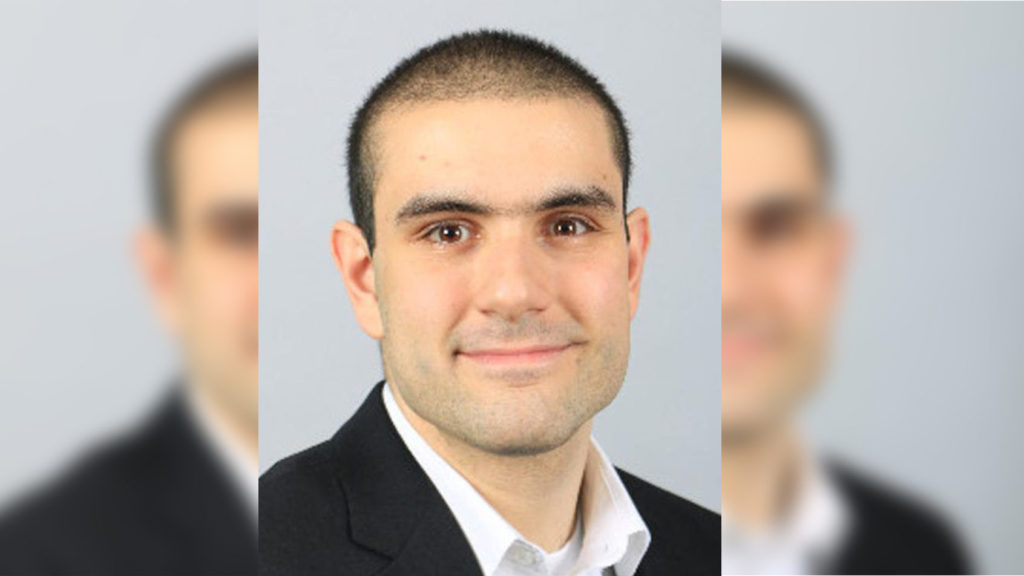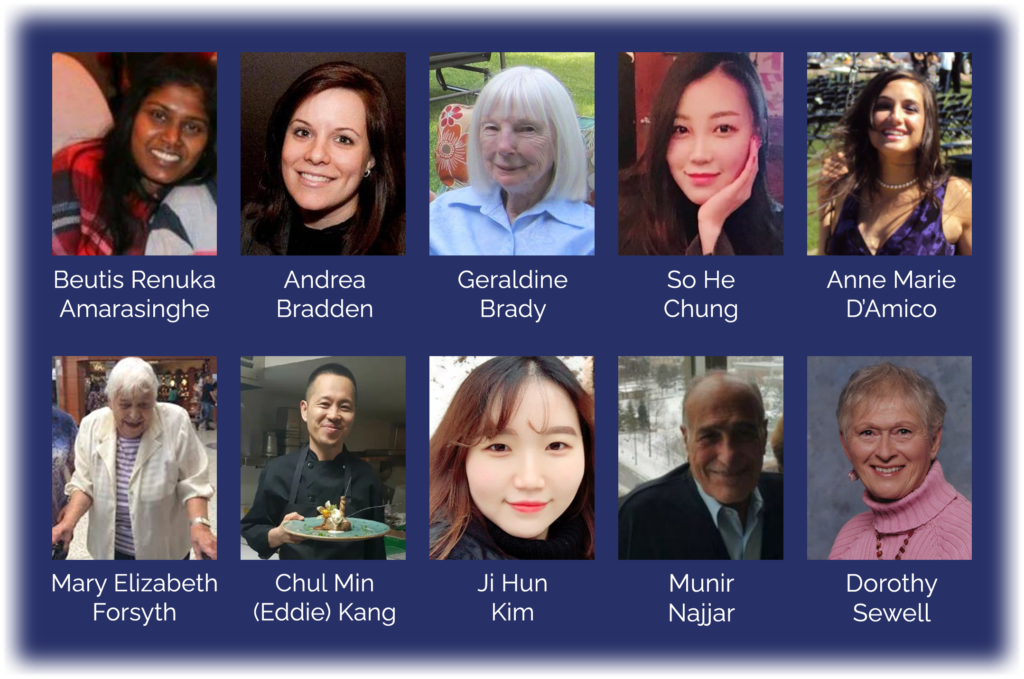The trial, conducted over Zoom, likely to focus on Minassian’s state of mind, not actions

Alek Minassian appeared before Justice Anne Molloy by Zoom Tuesday, in the first formal day of his trial for the deadly April 23, 2018 van attack in North York. The trial, delayed twice due to the pandemic, had a dry run on the teleconferencing software yesterday. The public can observe the trial in viewing rooms at the Metro Toronto Convention Centre.
The fact that Minassian, who turned 28 in custody on Nov. 3, was behind the wheel of the rented Ryder van that rampaged down a stretch of Yonge Street in North York, is not in dispute.
The judge-only trial, being held in the Ontario Superior Court of Justice, is instead expected to hinge on whether Minassian is criminally responsible for his actions. He is charged with 10 counts of first-degree murder and 16 counts of attempted murder.
‘I am a murdering piece of shit’
In a statement of facts read to the court last March, both the Crown and the defence agreed that Minassian was the perpetrator of the attack.
Minassian was arrested at the scene. When a booking officer asked him if he had any illnesses, Minassian answered in the affirmative, “Yes. I am a murdering piece of shit.”
Minassian freely admitted his motivations to Det. Rob Thomas of the Toronto Police Service in an interview that lasted nearly four-and-a-half hours. During the interview, Minassian outlined his desire for revenge on “Chads” and “Stacys” — sexually successful men and women — as part of an “incel rebellion” whereby “involuntary celibates” like him would rise up en masse in retribution for social and sexual frustrations.
In a Facebook post before the attack, Minassian also expressed admiration for “supreme gentleman” Elliot Rodger. Rodger killed six others and then himself in Isla Vista, Calif. in 2014 over similar motivations.
The plea of not criminally responsible
With repeated admissions and a body of undisputed evidence that he committed the attack, Minassian’s defence is instead expected to focus on criminal responsibility for his actions, formally called a plea of not criminally responsible on account of mental disorder.
The plea, often abbreviated simply to NCR or referred to colloquially as the insanity defence, is when the accused doesn’t dispute that they committed actions that would otherwise be criminal, but argue they lacked the moral capacity to choose between right and wrong.
A plea of not criminally responsible shifts the onus of proof from the Crown to the defence, where the defence must show that not only does the accused have a mental disorder, but that that disorder is so severe as to impair their ability to judge their actions.
Common mental health issues like depression and anxiety typically don’t rise to the threshold of the defence unless they cause such severe impairment as to disconnect the sufferer from reality. Even severe personality disorders such as psychopathy, narcissistic personality disorder or borderline personality disorder don’t meet the definition, since individuals with those disorders can still discern right from wrong.
Instead the defence covers the obvious, such as psychosis, but can also include sleepwalking, and, in a controversial recent judgment from the Ontario Court of Appeals, extreme voluntary intoxication. Anything that might represent a total separation from reality rising from a mental disorder falls under its purview, and that disconnect only needs to last as long as what would otherwise be the criminal act.
Minassian is described as having a mental disorder; his mother described him in a 2009 Richmond Hill Liberal article as having Asperger’s syndrome, now called autism spectrum disorder. There is no evidence of higher criminal behaviour in individuals with autism. It’s unknown at the time of publication if a defence of NCR would rely on Minassian’s autism spectrum disorder or another disorder.
Despite sometimes strong opposition to the plea as a “get out of jail free” card, such as the 2017 unconditional discharge of Vince Li, who decapitated and partially cannibalized Tim McLean on a Greyhound bus in 2008, a successful plea of not criminally responsible is rare. Statistics Canada reported in 2015 that fewer than one per cent — nearer to one in 1,000 — of all criminal cases in adult court receive a judgment of NCR, compared to two-thirds of cases ending in a finding of guilty.
Victims include three with ties to Ryerson

The 10 people killed in Minassian’s attack were 45-year-old nutritionist Beutis Renuka Amarasinghe, 33-year-old account executive Andrea Bradden, 83-year-old Avon saleswoman Geraldine Brady, 22-year-old University of Toronto student So He Chung, 30-year-old financial analyst Anne Marie D’Amico, 94-year-old retiree Mary Elizabeth Forsyth, 45-year-old chef Chul Min (Eddie) Kang, 22-year-old Seneca College international student Ji Hun Kim, 85-year-old Jordanian retiree Munir Najjar (in Toronto visiting family), and 80-year-old retiree Dorothy Sewell.
The 16 people Minassian is charged with attempting to murder are Xiaolong An, Robert Anderson, Amir Kiumarsi, Aleksandra Kozhevinikova, Mavis Justino, Morgan McDougall, Hyeon Jeong Moon, Jun Seok Park, Samantha Peart, So Ra, Catherine Riddell, Dina Risin, Sammantha Samson, Beverly Smith, Amaresh Tesfamariam and Yunsheng Tian.
One of the deceased and two survivors have ties to Ryerson University. D’Amico graduated from the Ted Rogers School of Management in 2010, according to a statement from Mohamed Lachemi, president of Ryerson University. The statement also mentioned a contract lecturer and an alumna were among those injured by the attack. The lecturer was later identified as Kiumarsi, a chemistry contract instructor and chief steward of CUPE 3904 , Unit 2, the union representing contract lecturers. The surviving alumna has not been identified.
D’Amico was described by Abdullah Snobar, who oversees Ryerson’s DMZ business incubator, as “the most positive human” in a tweet the day after the attack. Her family later set up the Anne Marie D’Amico Foundation to raise money to support women who are victims of violence.
Kiumarsi is well-regarded in his role as a course instructor. He received high praise from former students on RateMyProf, where he was described as “kind,” “genuine” and “caring.” Kiumarsi filed a civil lawsuit against Minassian for $6 million, describing debilitating injuries ranging from skull and spine fractures to traumatic brain and organ injuries.
The court will not be in session tomorrow, in recognition of Remembrance Day. The trial resumes Thursday, Nov. 12.
